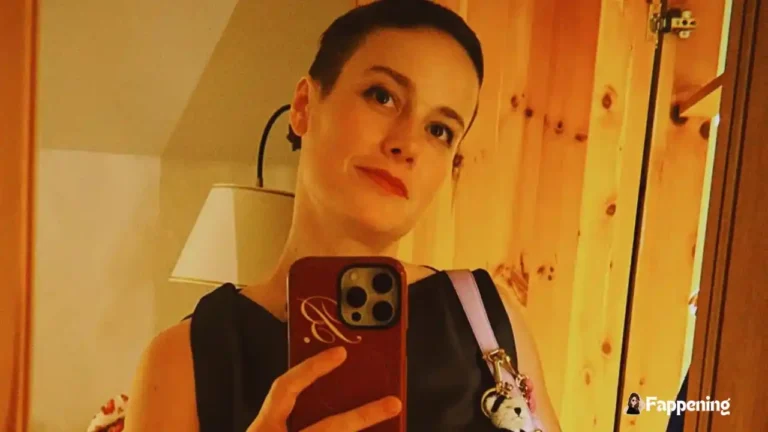Bethany Anne Lind Fappening – The Truth They Don’t Want You to Know!
Introduction to Bethany Anne Lind Fappening

Who is Bethany Anne Lind?
Bethany Anne Lind is a talented American actress known for her work in film, television, and theater. She has gained recognition for her roles in TV series such as Ozark, Doom Patrol, and Reprisal. With her strong performances and captivating screen presence, Lind has built a reputation for portraying complex characters in both indie and mainstream productions.
Check ALso: Ariana Grande Fappening
Why is Her Name Linked to “Fappening”?
Despite her success in the entertainment industry, Bethany Anne Lind’s name has been controversially linked to the infamous term “Fappening”, a term associated with leaked celebrity content. The connection seems to stem from online rumors, speculation, and misinformation, rather than any verified incident. This has led to widespread confusion and false claims, often amplified by social media and certain websites seeking clickbait engagement.

Addressing the Controversy & Viral Nature of the Topic
- The internet thrives on scandal, speculation, and sensationalism, which often leads to misinformation spreading rapidly.
- In recent years, many celebrities have been falsely linked to leaks or controversies without any real evidence.
- The public’s curiosity and the media’s role in amplifying these claims have made it difficult to separate truth from fiction.
Know more about: Alexandra Daddario Fappening Moments
Setting the Stage for Unveiling the Truth
In this article, we will fact-check the rumors, analyze why Bethany Anne Lind’s name is involved in this controversy, and discuss the wider implications of such scandals on personal privacy, cybersecurity, and celebrity culture.
Understanding the “Fappening” Scandal

What is the Fappening? (Brief History & Past Incidents)
The term “Fappening” originated in 2014 when a massive leak of private celebrity photos surfaced online. This cyber-attack was one of the most notorious privacy breaches in internet history, affecting dozens of high-profile figures, including actresses, musicians, and models.
- How Did It Happen? Hackers exploited security vulnerabilities in cloud storage systems, primarily Apple’s iCloud, to gain access to personal images of celebrities.
- Impact on Celebrities: Many victims suffered emotional distress, legal battles, and damage to their public image due to the leak.
Dont miss: Kaley Cuoco Fappening
How Did It Become a Major Internet Controversy?
The scandal became a global phenomenon for several reasons:
- The shock value of seeing private content leaked to the public.
- Media sensationalism that turned it into a mainstream news event.
- The involvement of high-profile celebrities fueled massive discussions on privacy, ethics, and internet security.
Despite being condemned as a gross invasion of privacy, the leaked content circulated widely on forums, social media, and file-sharing platforms, raising serious ethical and legal concerns.
Read Also: Hope Solo Fappening
The Implications for Celebrities & Their Privacy
The Fappening scandal had long-term consequences:
- Increased cybersecurity awareness: Celebrities began using stronger digital security measures to protect their data.
- Legal battles & arrests: Hackers responsible for the leaks were eventually tracked down, arrested, and sentenced.
- Changes in public perception: The incident sparked debates on victim-blaming, digital ethics, and personal privacy in the digital age.
Was Bethany Anne Lind Really Involved?

Fact-Checking the Claims – Is There Any Real Evidence?
When it comes to online rumors, it’s crucial to separate fact from fiction. In the case of Bethany Anne Lind, there is no credible evidence linking her to any “Fappening” leak.
- No leaked content: Unlike celebrities who were actually victims of hacking, no legitimate sources or legal cases mention Bethany Anne Lind in connection to the Fappening.
- No verified reports: Major news outlets, cybersecurity firms, or investigative journalists have never reported any leaks involving her.
- No hacking incidents: There is no record of Lind’s accounts being compromised or any proof of her private data being accessed.
Thus, the allegations remain baseless, proving that this is nothing more than another case of internet misinformation.
How Rumors Spread (Fake News, Social Media, Reddit Discussions, etc.)
The internet is a breeding ground for false rumors, and cases like this follow a predictable pattern:
- Clickbait Websites & Forums
- Sensationalist headlines are designed to generate clicks, ad revenue, and viral traffic.
- Sites with no journalistic integrity often fabricate stories to gain traffic.
- Social Media Virality
- Reddit, Twitter, and Facebook serve as amplifiers for such hoaxes.
- Fake news spreads quickly when people share without fact-checking.
- Misleading Image Manipulation
- Some websites alter or misrepresent images, falsely claiming they are leaked.
- Reverse image searches often prove that such images belong to someone else or are deepfakes.
Read More: Fappening Plus Updates
Official Statements (Has Bethany Anne Lind Responded?)
Bethany Anne Lind has never addressed or confirmed any involvement in such a scandal—because there is nothing to address.
- Celebrities rarely respond to fake news unless it affects their career or legal standing.
- Since there is no legal case, no leaks, and no valid reports, there is no reason for her to comment on a baseless rumor.
Why Some People Believe the Hoax Despite Lack of Proof
Even when there is zero evidence, people continue believing false stories because:
- Curiosity Bias: People want to believe shocking scandals, even when they’re fake.
- Echo Chambers: Online forums reinforce misinformation through repeated discussions.
- Deepfake Technology: AI-generated content can mislead audiences into believing fabrications.
In reality, this rumor is a complete fabrication—built on clickbait, misinformation, and social media hype.
The Dark Side of Internet Hoaxes

How Celebrities Become Victims of Fake Leaks
The rise of deepfake technology, fake news, and digital manipulation has made it easier than ever to create false scandals. Even when no leaks occur, celebrities still suffer damage from:
- Fake Deepfake Videos & Edited Images: AI-generated content is used to falsely incriminate public figures.
- Clickbait Articles & YouTube Videos: Sensationalized headlines fool audiences into believing lies.
- Misinformation Spreading Rapidly: Fake news spreads faster than real news, making damage control difficult.
Who Profits from Spreading Such Rumors?
There is a clear financial incentive behind fake scandals. Those who benefit include:
- Clickbait Websites & Blogs
- Sensationalist content generates ad revenue from increased website traffic.
- Many sites use misleading headlines to trick users into clicking.
- Social Media Pages & YouTube Channels
- Viral controversy boosts engagement and ad monetization.
- Some influencers spread fake rumors to gain followers and views.
- Scam Websites & Malware Distributors
- Fake “leak” websites trick users into downloading viruses, phishing scams, or paying for false content.
The Psychological & Career Impact on Individuals
Even false accusations can have serious consequences on a celebrity’s life:
- Emotional Toll: Many victims suffer from anxiety, depression, and public humiliation.
- Career Damage: Even if completely false, the association with a scandal can hurt future job opportunities.
- Invasion of Privacy: Even celebrities deserve privacy, and false allegations put them under unnecessary public scrutiny.
Legal Actions Taken in Past Similar Cases
In response to past hacking incidents and fake leaks, authorities have cracked down on cybercriminals:
- 2014 iCloud Hack Arrests: Multiple individuals were arrested and sentenced for hacking celebrities’ accounts.
- Deepfake & Revenge Porn Laws: Many countries have introduced laws to criminalize the spread of false, manipulated content.
- Defamation Lawsuits: Some celebrities have sued fake news websites for publishing false claims.
The rise of legal action against false information is a warning to rumor-spreaders and cybercriminals.
Cybersecurity & Privacy Risks
How Such Leaks (Real or Fake) Impact Personal Privacy
The internet never forgets, and whether a leak is real or fake, the impact on personal privacy is severe. Celebrities and ordinary individuals alike suffer consequences from these violations:
- Psychological Stress – Even fabricated rumors can cause emotional distress, anxiety, and damage to personal and professional life.
- Permanent Digital Footprint – Once something circulates online, it becomes almost impossible to erase, affecting careers and relationships.
- Doxxing & Stalking Risks – False leaks encourage cyberstalking and real-world harassment, increasing threats to personal safety.
- Loss of Professional Opportunities – A celebrity’s reputation can influence casting decisions, sponsorships, and public perception, even when rumors are debunked.
Cybersecurity Concerns & the Rise of Deepfake Technology
The evolution of cyber threats means that anyone—celebrity or not—can become a victim.
1. Rise of Deepfake Technology
Deepfake AI allows manipulated images and videos to be created with alarming realism. This means that:
- Fake leaks can be generated without hacking—making false rumors more dangerous than ever.
- Deepfake scandals are difficult to disprove, as the technology keeps improving.
- Celebrities, politicians, and influencers face higher risks of being falsely implicated in fake scandals.
2. Phishing & Social Engineering Attacks
- Hackers use phishing emails, fake login pages, and social engineering tactics to steal private data.
- Celebrity accounts and cloud storage services have been frequent targets of phishing attacks.
3. Blackmail & Ransom Threats
- Even when leaks are fake, criminals sometimes use them to extort money from victims.
- Scam websites & dark web markets are notorious for spreading misinformation to exploit public curiosity.
What Users Should Know About Online Privacy Protection
To protect yourself and avoid falling victim to fake scandals, misinformation, and data breaches, here are some critical steps:
✅ Use Strong, Unique Passwords – Weak passwords make accounts easy targets for hackers.
✅ Enable Two-Factor Authentication (2FA) – This extra layer of security prevents unauthorized logins.
✅ Avoid Clicking on Suspicious Links – Phishing attempts often disguise themselves as legitimate emails or websites.
✅ Be Skeptical of Unverified Content – Just because something is trending online doesn’t make it true.
✅ Use Reverse Image Searches – If you come across suspicious images, tools like Google Reverse Image Search can help detect if they’re manipulated.
As cybersecurity threats evolve, it’s important to stay informed, skeptical, and cautious when dealing with online content.
The Role of Media & Online Communities
How Media Outlets Amplify False Claims
News travels fast, but misinformation travels even faster. Some media outlets intentionally or unintentionally contribute to the spread of false stories by:
- Publishing Sensational Headlines – Clickbait journalism prioritizes views over facts, often misleading readers.
- Failing to Fact-Check Sources – Many sites republish viral stories without verifying authenticity.
- Using Misleading Thumbnails – Some news articles use completely unrelated images to imply scandal where none exists.
- Prioritizing Engagement Over Ethics – The more shocking the claim, the more clicks it generates, even if it’s false.
While responsible journalism exists, many low-quality sites and gossip blogs continue to fuel fake rumors for profit.
The Role of Forums Like Reddit, 4chan, and Twitter in Viral Rumors
The power of online communities plays a crucial role in making (or breaking) fake news.
- Reddit: Subreddits dedicated to celebrity gossip or hacking discussions often spread unverified rumors.
- 4chan & Other Anonymous Forums: These platforms are notorious for starting and amplifying false scandals.
- Twitter & Facebook: Viral trends take off quickly, and misinformation spreads before fact-checking catches up.
Ethical Concerns in Reporting on Celebrity Scandals
Misinformation can ruin lives, which raises important ethical questions:
🔴 Should news outlets report on unverified leaks?
🔴 Does the public have a right to know personal details about celebrities?
🔴 What responsibility do social media platforms have in preventing false rumors from spreading?
Many experts argue that the media should be held accountable for spreading misinformation, as false narratives can cause long-term damage to reputations and mental well-being.
What Can We Learn from This?
The Importance of Fact-Checking Before Believing Rumors
In today’s digital age, false information spreads faster than ever, and many people believe it without verifying its authenticity.
- Misinformation can damage reputations – Even when proven false, some people continue to believe the initial rumor.
- Sensationalism fuels clicks and engagement – Websites and social media accounts profit from fake news, prioritizing virality over truth.
- A single viral post can ruin a career – False accusations, even without evidence, can stick to someone’s name indefinitely.
🔹 Solution? Always fact-check! Before sharing or believing any scandalous rumor, check:
✔ Trusted news sources instead of gossip blogs.
✔ Official statements from the person involved.
✔ Fact-checking websites like Snopes, PolitiFact, or Google Reverse Image Search.
How Bethany Anne Lind’s Case Reflects a Larger Internet Problem
This controversy isn’t just about Bethany Anne Lind—it’s part of a bigger issue with internet culture:
- The internet lacks accountability – Anyone can spread false claims without consequences.
- Deepfake technology makes misinformation more convincing – Fake scandals are harder to debunk.
- Media and forums amplify unverified stories – Platforms like Twitter, Reddit, and 4chan allow rumors to gain traction quickly.
This case highlights why we need better digital literacy to combat misinformation.
Steps Individuals & Celebrities Can Take to Protect Privacy
Both public figures and everyday internet users should take steps to protect their online presence:
For Celebrities & Public Figures
✔ Legal Action – File defamation lawsuits against websites spreading false information.
✔ Secure Personal Data – Use encrypted cloud storage and strong passwords.
✔ Control the Narrative – Issue statements and take steps to clear up misinformation quickly.
For Everyday Internet Users
✔ Think Before Sharing – Avoid spreading rumors unless confirmed by trusted sources.
✔ Use Privacy-Focused Tech – Enable two-factor authentication and use VPNs to protect online activity.
✔ Educate Yourself on Digital Literacy – Recognize fake news, deepfakes, and misinformation tactics.
By staying informed and cautious, we can reduce the spread of harmful falsehoods.
Conclusion
Final Thoughts: What’s the Actual Truth?
The truth is simple: Bethany Anne Lind has no involvement in any “Fappening” scandal.
- No credible evidence or verified sources support these claims.
- The rumors were manufactured and spread through clickbait websites and online forums.
- This is yet another example of misinformation harming innocent individuals.
Debunking the Myth & Setting the Record Straight
✅ There is zero proof that Bethany Anne Lind was involved.
✅ The claims originated from unreliable sources and were never fact-checked.
✅ Similar hoaxes have targeted other celebrities, showing how easily false news spreads.
Encourage Responsible Internet Usage
As internet users, we have a responsibility to stop misinformation from spreading.
📌 Verify before believing – Always check sources before sharing news.
📌 Think critically – Just because something is trending doesn’t mean it’s true.
📌 Support ethical journalism – Avoid websites that profit from spreading lies.
By making these changes, we can create a safer, more truthful digital space.







